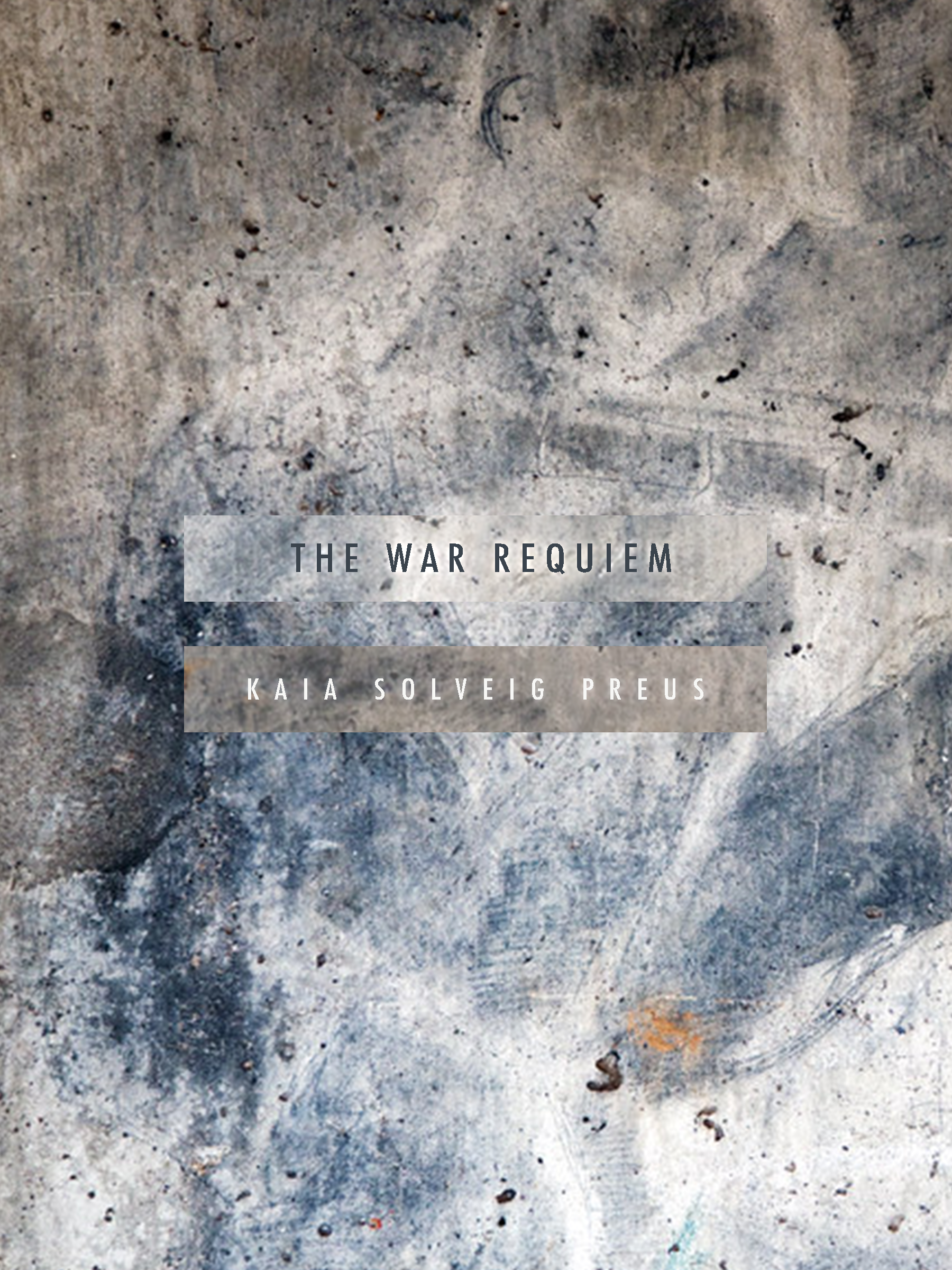Purchase
Praise for The War Requiem
A Finalist for the 2021 Minnesota Book Award
Winner of the Essay Press & University of Washington at Bothell MFA in Creative Writing and Poetics Book Contest
“Art is not an alternative to the world. Art is not an escape from, not a solution to the world. Art is the world. The War Requiems (Britten’s music and Preus’ book) remind us art can renovate the world.” ––Rebecca Brown
“In prose as liquid and clear and shining as a bell’s echoing tone, Preus has written a deeply moving and profound account of her encounter with this iconic work, a beautiful and passionate exploration of the power of art to reckon with history’s most desperate events and to transform our understanding of ourselves and others. Preus expertly collapses time and distance and brings both Britten and Owen to the page in sensuous and intimate detail. An unforgettable debut.” ––Carrie Brown
“Kaia Solveig Preus is a major new talent, and The War Requiem brilliantly defies categorization as a virtuoso synthesis of poetry, memoir, historical fiction, musical scholarship. This is literature and this is music and this is art.” ––Benjamin Percy
“In precise, incandescent prose, Kaia Preus’s War Requiem weds the instrument of the human voice with the instrument of the essay for a reverie against silence and death. Like Benjamin Britten, but with words as her medium, Preus sets to a taut lyricism the letters and lives of Wilfred Owen and Britten interspersed with her experiences as a reader, singer, and writer. The choral effect is profound and heartfelt and reminds that while ‘a life cannot last. Music can.’” ––Jennifer Kwon Dobbs
About the War requiem
Kaia’s book, The War Requiem, blends memoir, research, and historical fiction, in order to explore Benjamin Britten’s dynamic piece of choral and orchestral music, the War Requiem, Op. 66. Written to commemorate the new Coventry Cathedral’s consecration (following World War II bombing), the War Requiem blends the Latin Mass for the Dead with nine poems by Wilfred Owen. Just as Britten’s piece pulls together many threads and subjects, this book braids three separate stories of Britten, Owen, and the author, to better understand the process of art-making and the lasting effects of both art and war.
